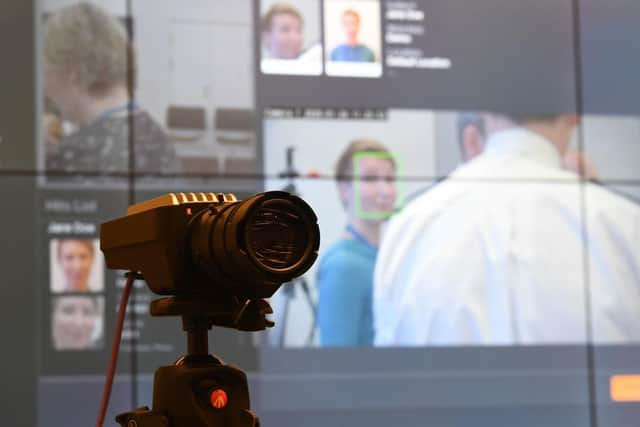Human rights campaigners criticise Met Police over plans to use facial recognition tech at coronation
and live on Freeview channel 276
Human rights campaigners have criticised the Metropolitan Police’s plans to use facial recognition technology at the coronation on Saturday. The plans to implement the tech comes with a “watch list” of people that officers believe could pose a potential public safety risk.
The list, the force said, includes offenders under strict licence conditions and wanted criminals. And while they noted that there are no specific security threats at the moment, they "won't stand for anyone committing criminal acts in the name of protest".
Advertisement
Hide AdAdvertisement
Hide AdBut the use of facial recognition has had human rights campaigners lashing out, with Emmanuelle Andrews, policy and campaigns manager at Liberty, saying: “Facial recognition is a dystopian tool that violates our rights and threatens our liberty.
“We all have the right to go about our lives without being surveilled and monitored – but this weekend, anyone in the vicinity of the King’s coronation is at risk of having their face scanned by this oppressive technology,” he continued. “In 2020, we won a ground-breaking case against facial recognition – with a judge ruling that this tool breaches our privacy rights, data protection laws and equality laws.”
He added: “This use of facial recognition will have a huge impact on all of our right to protest. We have already seen a huge crackdown on protest ahead of the coronation, with new measures brought in this week to further restrict the ways in which people can make their voices heard.
“Now it’s likely that facial recognition will be used to monitor anyone who wants to exercise their right to protest – an extremely worrying development. Facial recognition is a threat to our freedom – it needs to be banned.”
Advertisement
Hide AdAdvertisement
Hide AdLegal and policy officer at Big Brother Watch, Madeleine Stone, said: “Live facial recognition is an authoritarian mass surveillance tool that turns the public into walking ID cards. This Orwellian technology may be used in China and Russia but has no place on the streets of Britain, least not during the Coronation.
“The hundreds of thousands of innocent people attending this historic event must not be treated like suspects in a lineup and subjected to biometric police identity checks. The use of live facial recognition would have a serious chilling effect on the right to free speech on a day when thousands will be considering celebrating or protesting.


While there are disputes on just how accurate facial recognition tech is, Ms Stone continued: “Analysis of the Met’s own figures show that 86% of facial recognition flags are inaccurate. If this dangerously inaccurate technology is deployed at the Coronation it is unlikely to have any policing benefits but would have a serious cost to police resources and the public’s privacy rights, meaning many people will be wrongly flagged as criminals and forced to prove their innocence.
She added: “Live facial recognition is not referenced in a single UK law, has never been debated in parliament, and is one of the most privacy-intrusive technologies ever used in British policing. This dystopian technology should not be anywhere near the Coronation. The Home Secretary should urgently ban police use of live facial recognition.”
Advertisement
Hide AdAdvertisement
Hide AdTalking to journalists on Wednesday (May 3), Met Police Deputy Assistant Commissioner Ade Adelakan said: “We intend to use facial recognition technology in central London.
“The watch list will be focused on those whose attendance on Coronation Day would raise public protection concerns, including those wanted for offences or have an outstanding warrant for arrest issued by the courts, or those under relevant offender management programmes in order to keep the public safe.”
Comment Guidelines
National World encourages reader discussion on our stories. User feedback, insights and back-and-forth exchanges add a rich layer of context to reporting. Please review our Community Guidelines before commenting.
